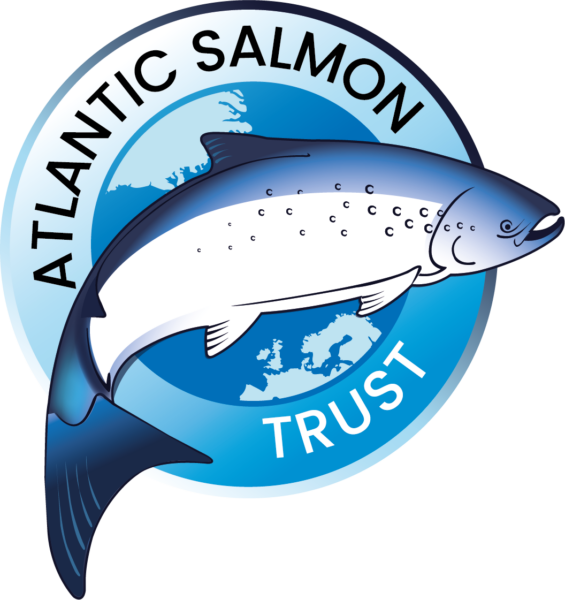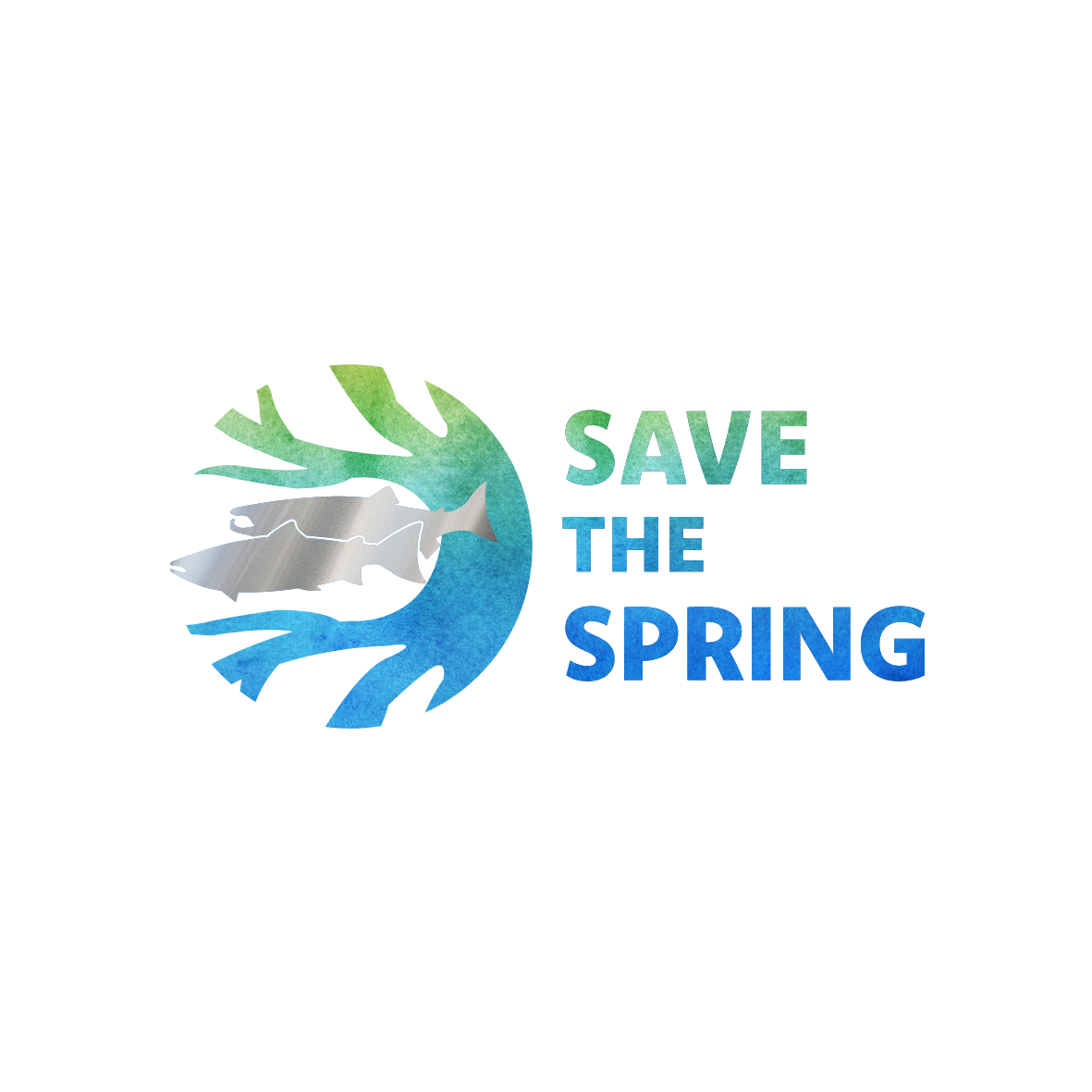
Save the Spring is a partnership between the River Dee Trust, Dee District Salmon Fishery Board and Atlantic Salmon Trust, supported by the University of Stirling and UHI Inverness.
A Milestone Reached
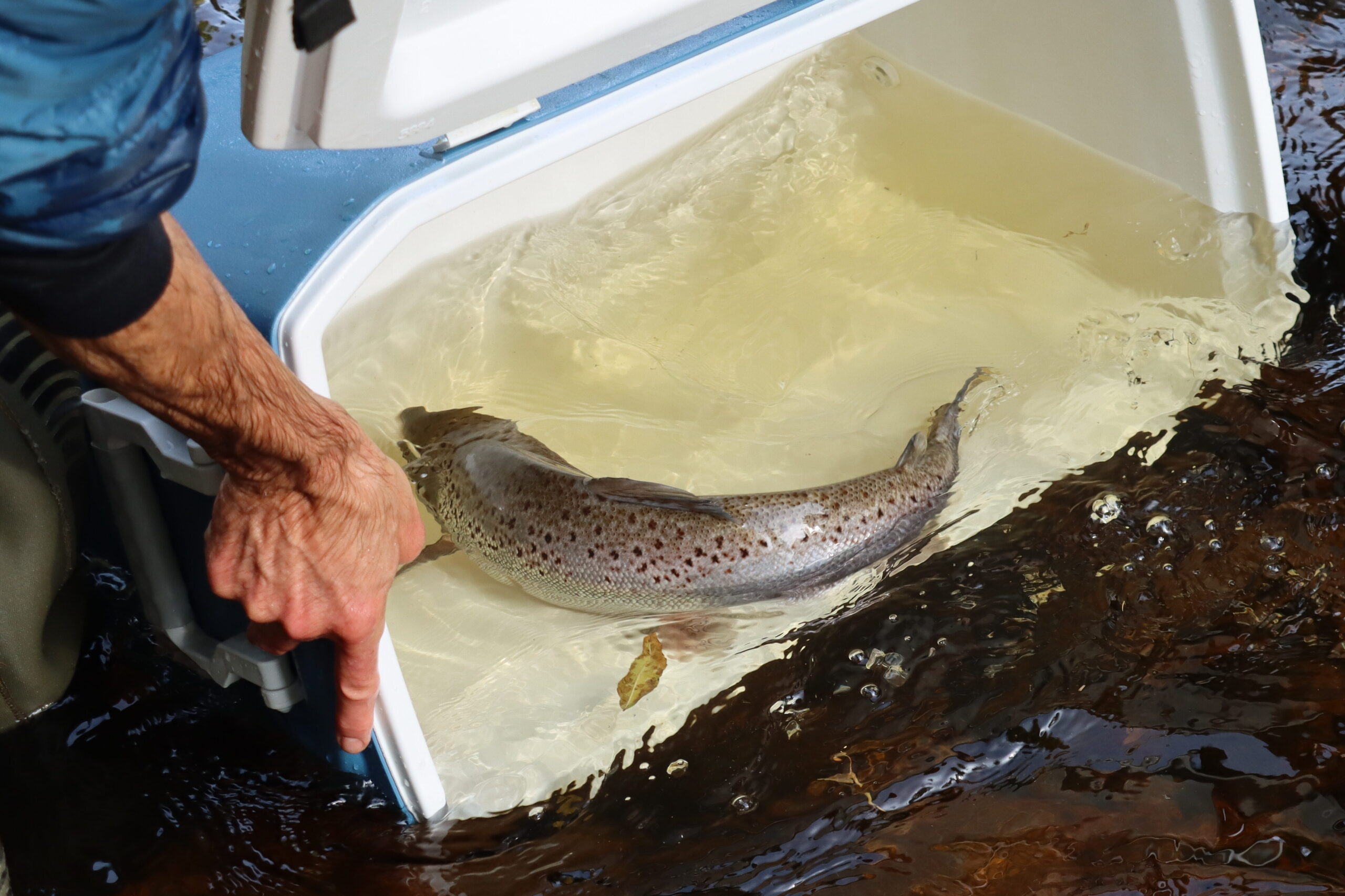
The Save the Spring partnership is delighted to report the recent achievement of a major milestone for the programme – the successful return of adult salmon back to the River Muick in early October 2025 as part of our smolt-to-adult supplementation trial.
This trial aims to investigate whether the method is a viable one which can be used to support critically low populations of wild Atlantic salmon in the Dee catchment and elsewhere. It aims to reduce the well-documented genetic and behavioural risks associated with traditional ‘stocking’ by avoiding captive-rearing at early lifestages, and by facilitating natural mate selection and wild spawning behaviour.
Given the innovative nature of this trial, the partnership has taken steps to ensure best practice is being followed. The trial is guided by the International Union for the Conservation of Nature (IUCN) guidelines for reintroductions and conservation translocations. A key aspect of these guidelines is that translocations should only take place where there is suitable habitat. The River Muick was therefore selected for the trial as it has been subject to a programme of ongoing habitat restoration and resilience work supported by local landowners for almost a decade. Its salmon population remains critically low however, as many of the benefits of this habitat improvement work are expected to materialise over the medium to longer term.
Adult fish which were released this month were captured from the River Muick as wild smolts in April 2024, and since that time have been cared for and reared to adulthood at the University of Stirling Institute of Aquaculture Marine Environment Research Laboratory (MERL). They have been housed in strict biosecure conditions and separated from other fish at the facility in dedicated quarantine units, in on-shore closed containment saltwater tanks. The team has also worked closely with independent veterinary experts and the Scottish Government’s Fish Health Inspectorate to ensure that fish released back into the wild are healthy and disease-free. By doing this we can give these precious fish the best opportunity to spawn in the wild and support the next generation of wild salmon in recovering, resilient habitat.
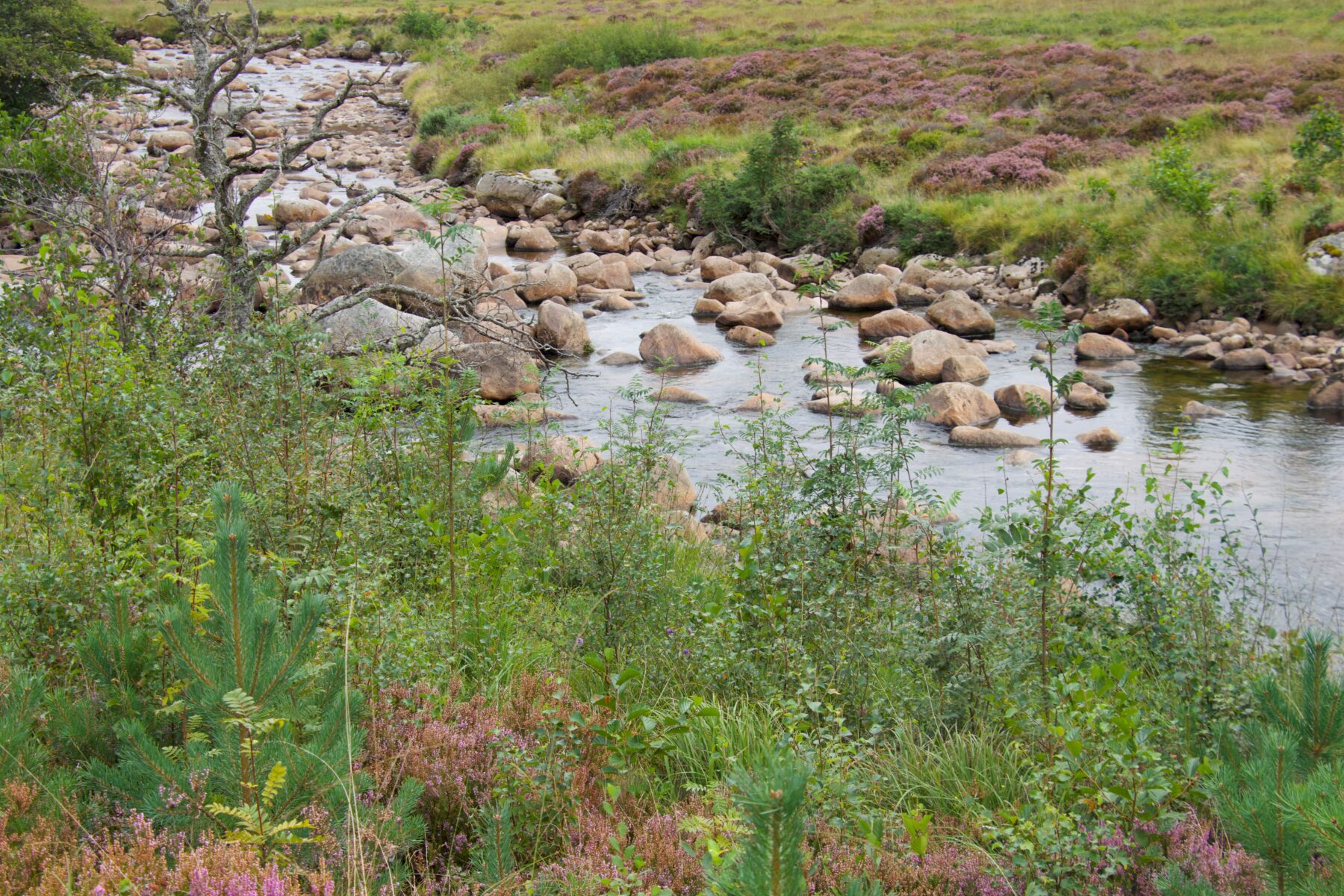
Regenerating riverside woodland on the River Muick.
How it works

Preparing for Release
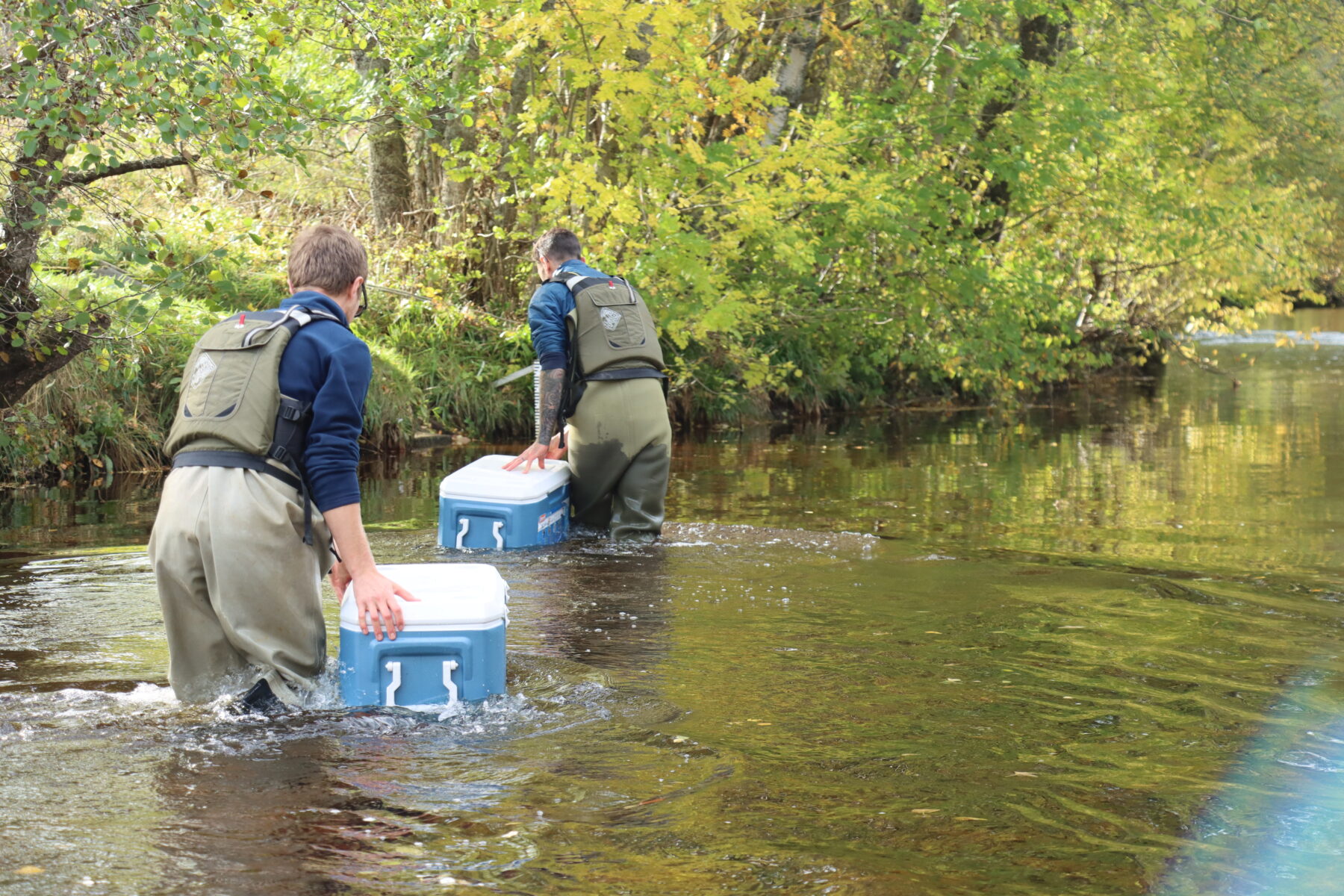
Throughout the past 18 months we have reported at various points on the growth and status of this first cohort of fish (a second cohort of 100 was brought into the programme as wild smolts in April this year for planned release in 2026).
It was deemed that 75 of the 79 fish from cohort 1 were ready to be released back into the River Muick after indicating signs of maturation. These fish weighed between 1-4lbs in weight having matured as ‘grilse’ – ‘one sea-winter’ salmon. Four fish have been kept back and we aim to release these individuals next year if signs of maturation are observed.
After being safely transported back to their home river by road, fish were held for a few days in purpose-built pens in a sheltered part of the River Muick to allow them to acclimatise to the current, temperature and water chemistry. This also enabled the team to monitor and observe the fish closely. During this time we also welcomed members of the Scottish Government’s Marine Directorate for a site visit.
After acclimatisation in the river, fish were prepared for release at the locations where they were first captured as smolts. As each fish was implanted with a PIT (Passive Integrated Transponder) tag with a unique ID when originally captured, we knew exactly where each fish was initially trapped. Based on this information, fish were released at either an upper or lower release site in the River Muick.
Fish were either carefully netted from their holding pens and returned to the river, or individually transported into cooler boxes and released. All efforts were made throughout the process to minimise handling.
Prior to release back into the wild, fish were re-acclimatised to their home river in purpose-built temporary pens. This allowed the team to check on them over several days and for the fish to adjust to the current, temperature and water chemistry.
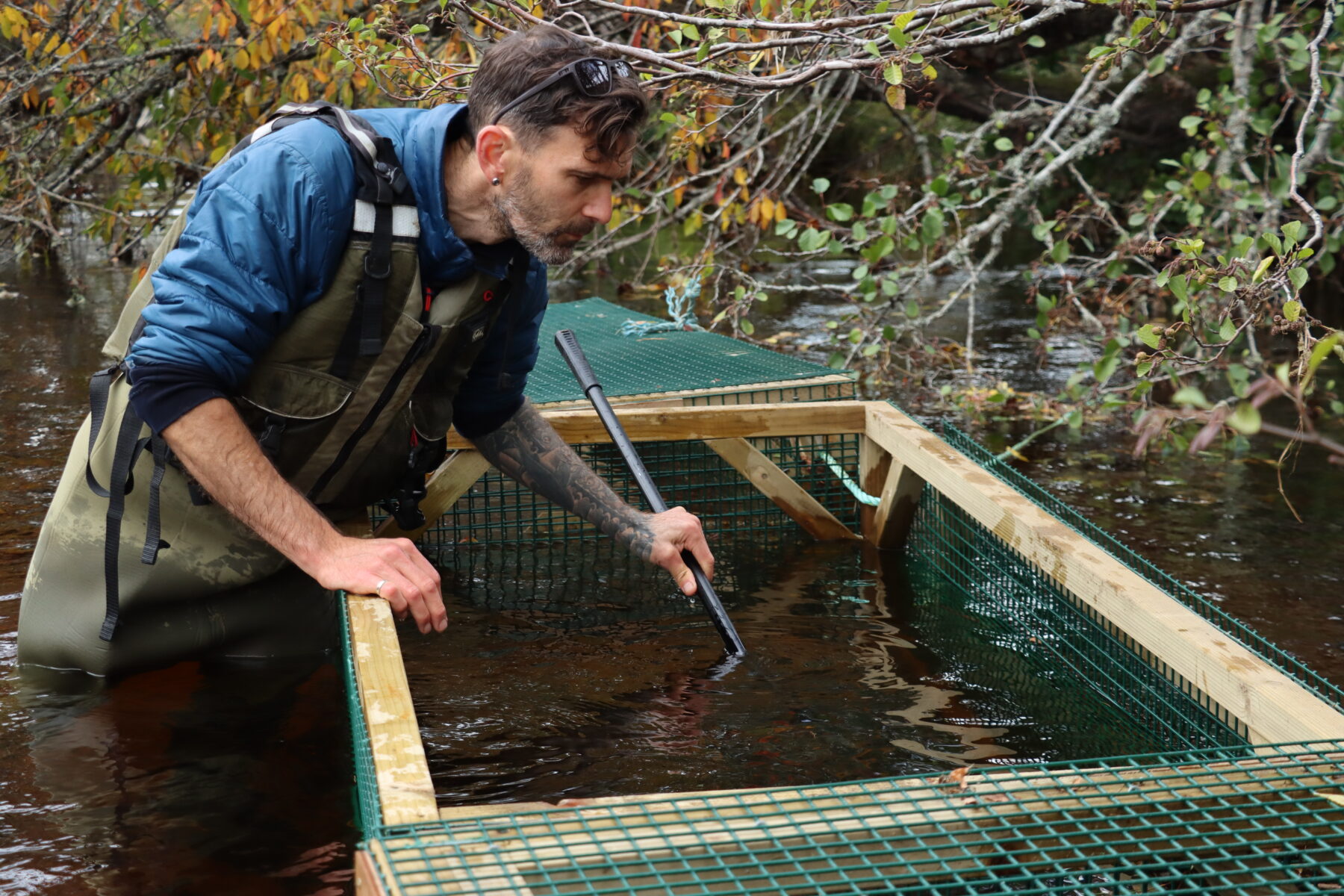
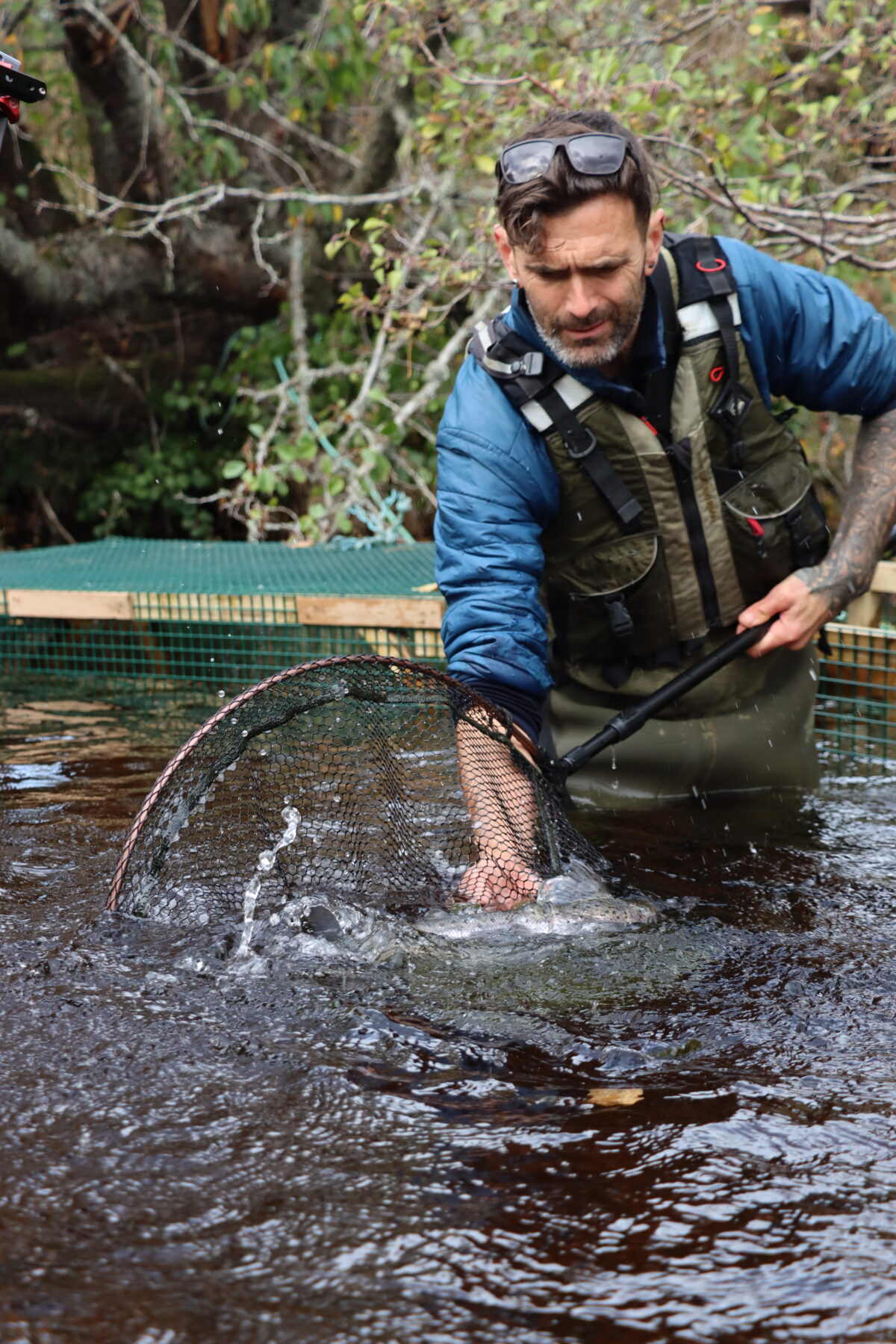
Dr Al Reeve of the River Dee Trust releases one of the trial’s mature adult salmon.
Swimming Back Home
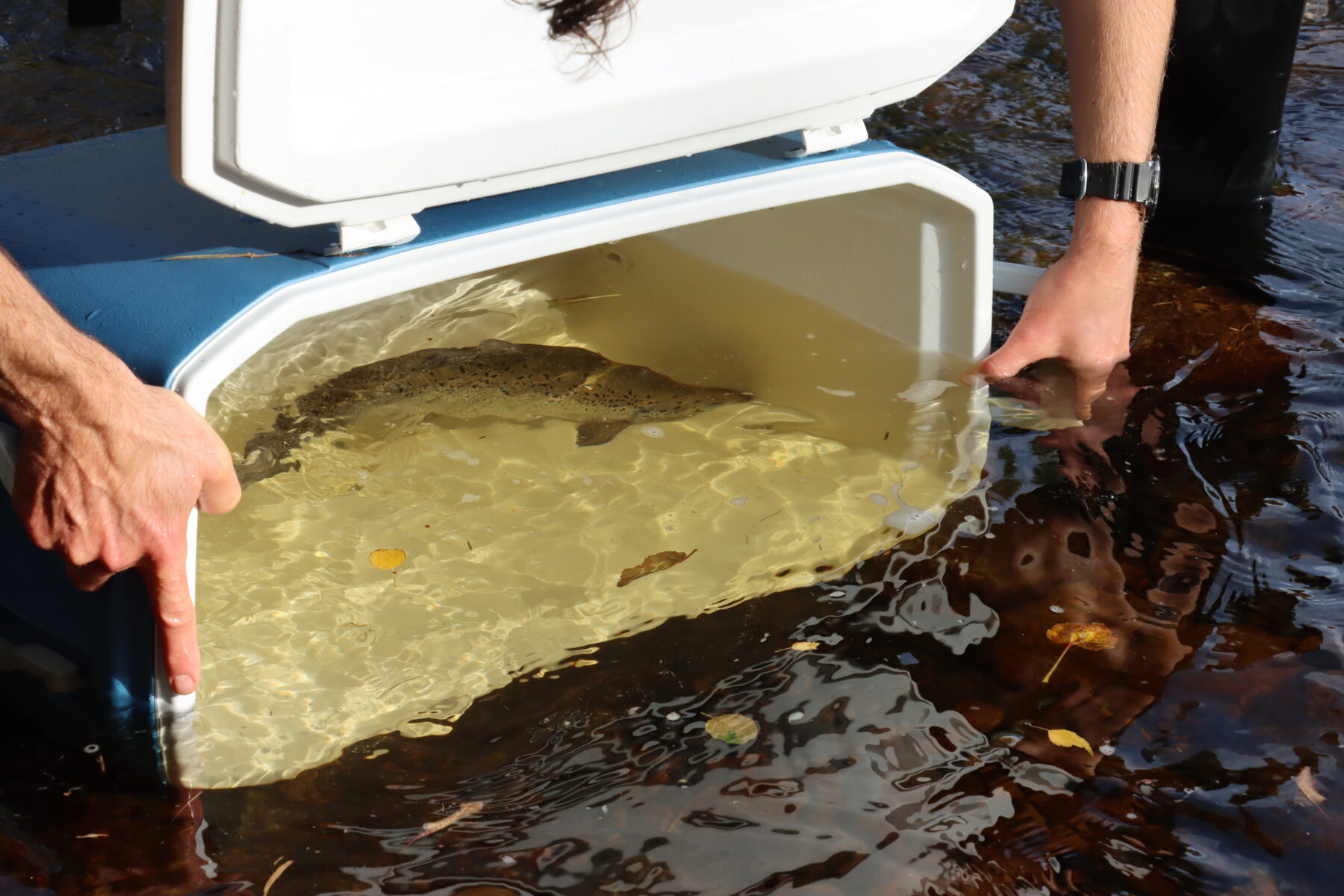
It’s safe to say the sight of our fish swimming back into their home river was quite an emotional moment for our team, having monitored their growth and planned the release process over many months, added to the consideration of the many potential challenges we faced. Not least Storm Amy which thankfully did not interfere with our release activity. One by one fish swam freely back into their home river again, some appearing to swim straight into the release pool and others making an immediate effort to move upstream, following their natural urges to swim against the current.
While challenges remain, seeing all 75 fish swim off successfully has been a hugely significant moment for the Save the Spring partnership, made possible by a great deal of hard work, partnership and planning.
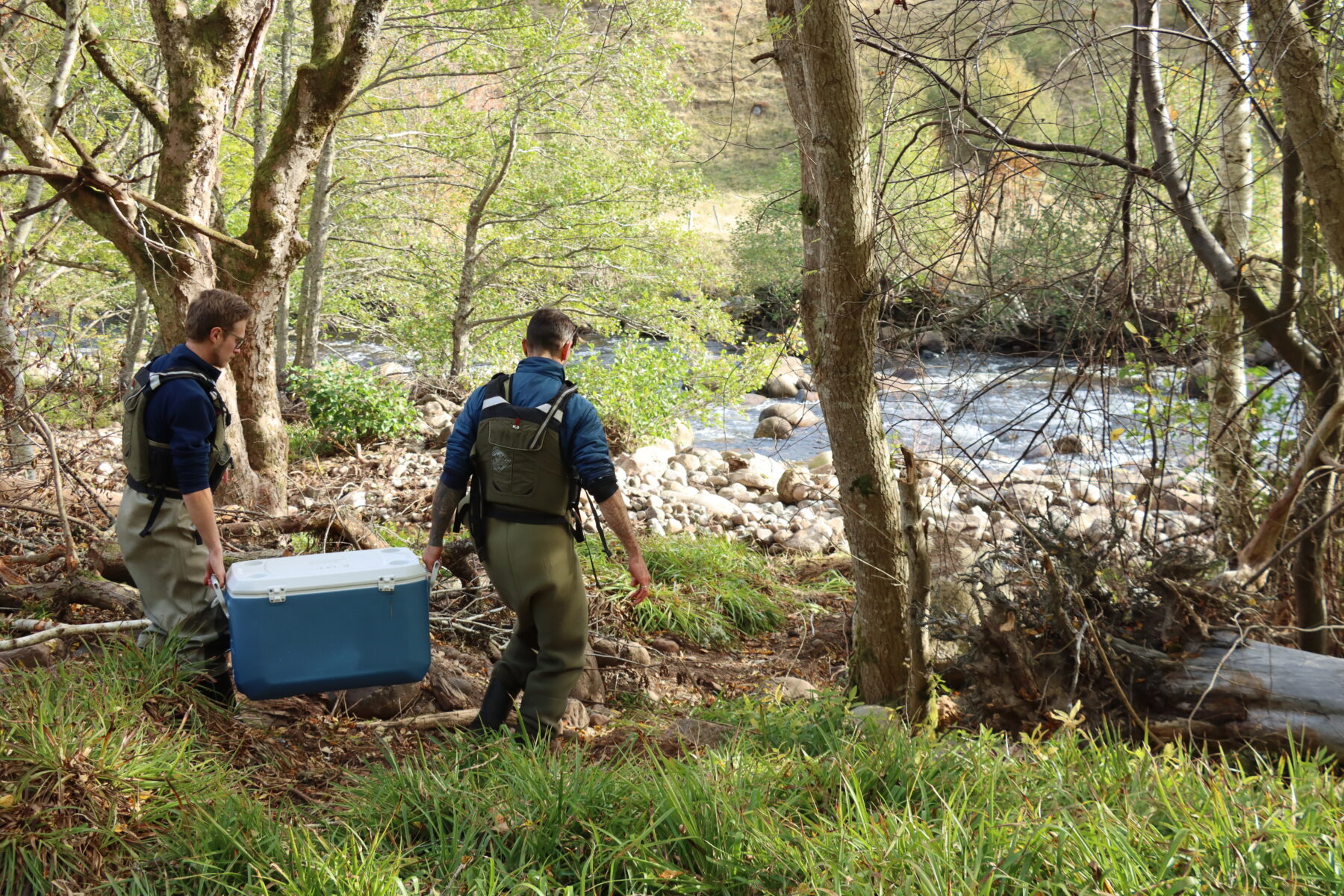
What Next: Understanding the Impact
Radio Tracking to Locate Released Fish
Prior to their release back into the Muick as adults, 48 fish were radio tagged, enabling the team to track their whereabouts in real time with handheld listening equipment. This is enabling us to understand how the fish move post-release and will allow us to precisely locate them to observe and document any spawning activity.
Radio monitoring over the next few weeks and months will comprise a combination of handheld listening equipment operated by the team throughout the area, and a fixed listening station which records and logs tag numbers which come into range. Initial surveys have allowed us to locate the majority of the radio tagged fish, some of whom have remained close to their release sites and others who have moved several hundred metres. An interesting observation was made of a fish which, unlike most that swam slowly upstream straight away, turned immediately downstream when it swam off. However just a few minutes later, radio tracking allowed us to confirm that the fish had turned upstream and was now approximately 200m upstream of the release site.
Longer Term Monitoring
In addition to this important short term tracking, it is essential that the trial puts in place longer term methods to assess its level of success and impact. This is where genetic work will be key.
Genetic samples were taken from every fish which has entered the trial. Through future juvenile survey work and genetic sampling, we will be able to determine the contribution to the population made by fish in the trial, matching juveniles to their parents. With this information, and after conducting the trial for several years, we will be able to understand the viability and impact of this technique.
A combination of handheld and fixed station radio tracking is enabling us to monitor the movements and behaviour of released fish. Longer term, juvenile surveys and genetic monitoring will allow us to measure the trial’s impact.
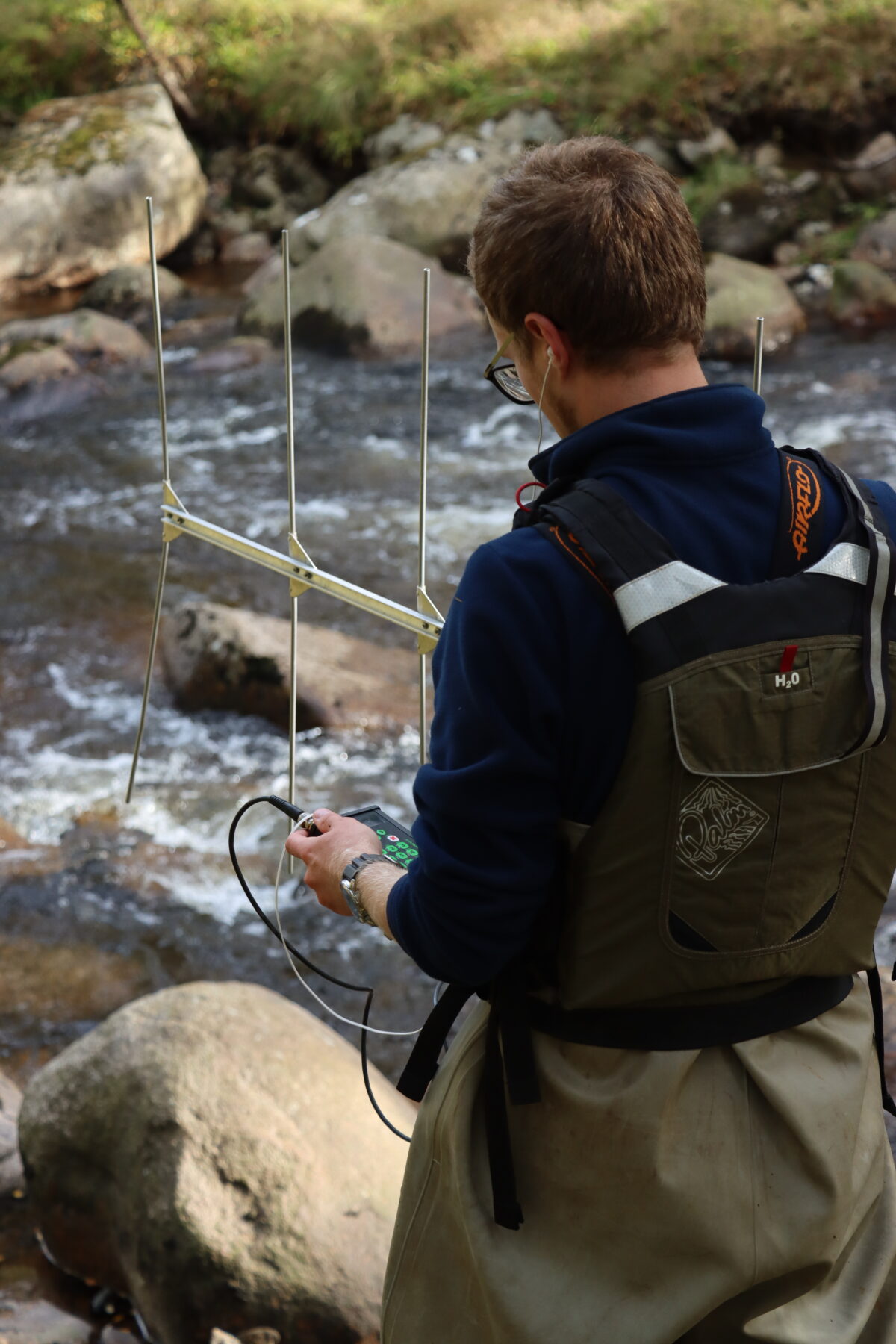
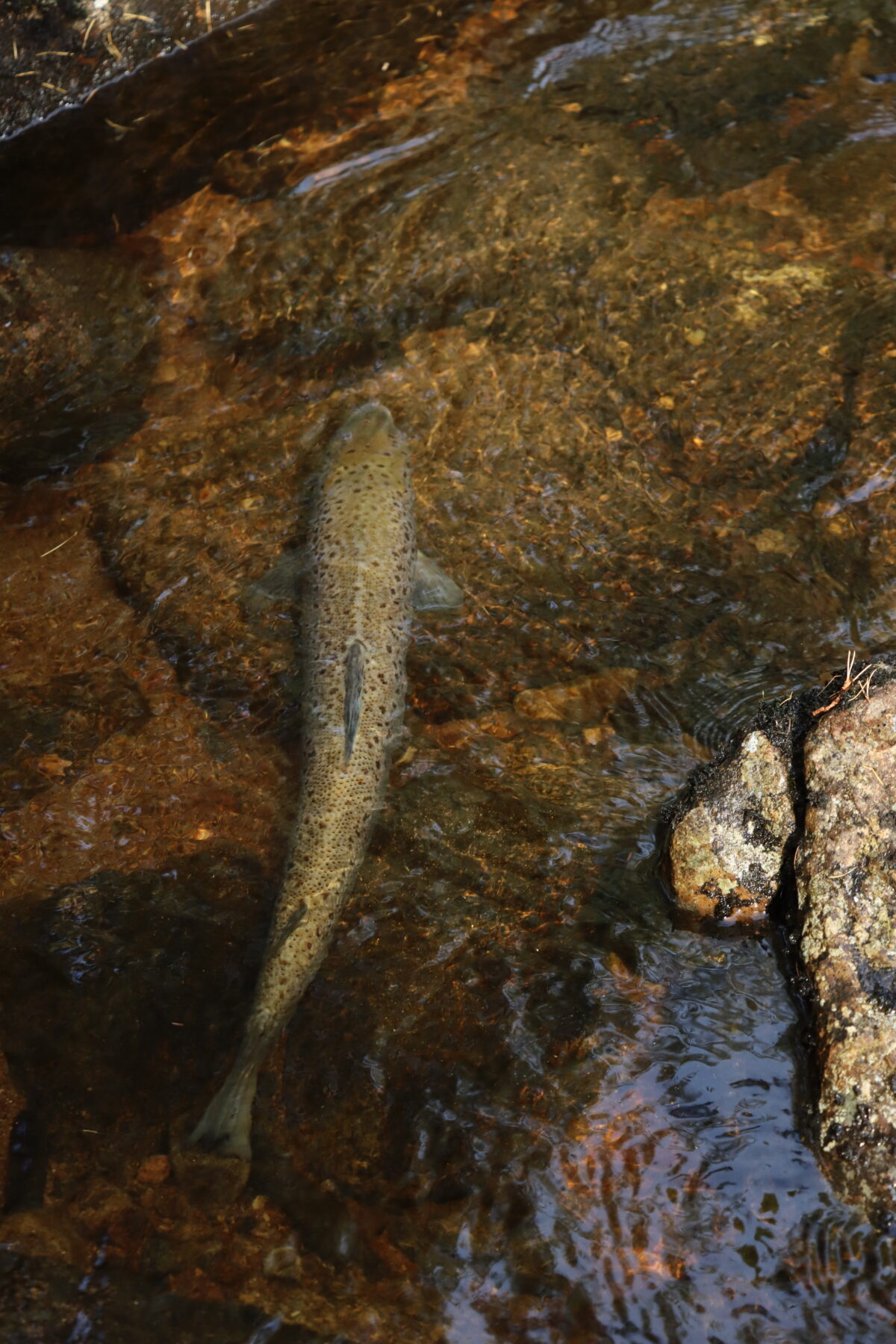
A radio-tagged fish returned to the River Muick swims away. This fish was recorded 200m upstream later that day.
Challenges and Unknowns
Throughout the span of this trial’s first cohort of fish, from capture as smolts in April 2024 to their recent release, the Save the Spring partnership has been transparent about the many potential challenges which we face.
We do not yet know how these fish will behave back in the wild environment and whether they will spawn successfully this season. If they do, we need to work to understand what contribution they make to the juvenile salmon population, whether those juveniles successfully smolt and go to sea, and whether those smolts successfully return as spawning adults, helping to aid the recovery of an individual population of wild salmon. Running the trial over a number of seasons, combined with effective genetic monitoring and survey work is now required in order for us to answer those important questions.
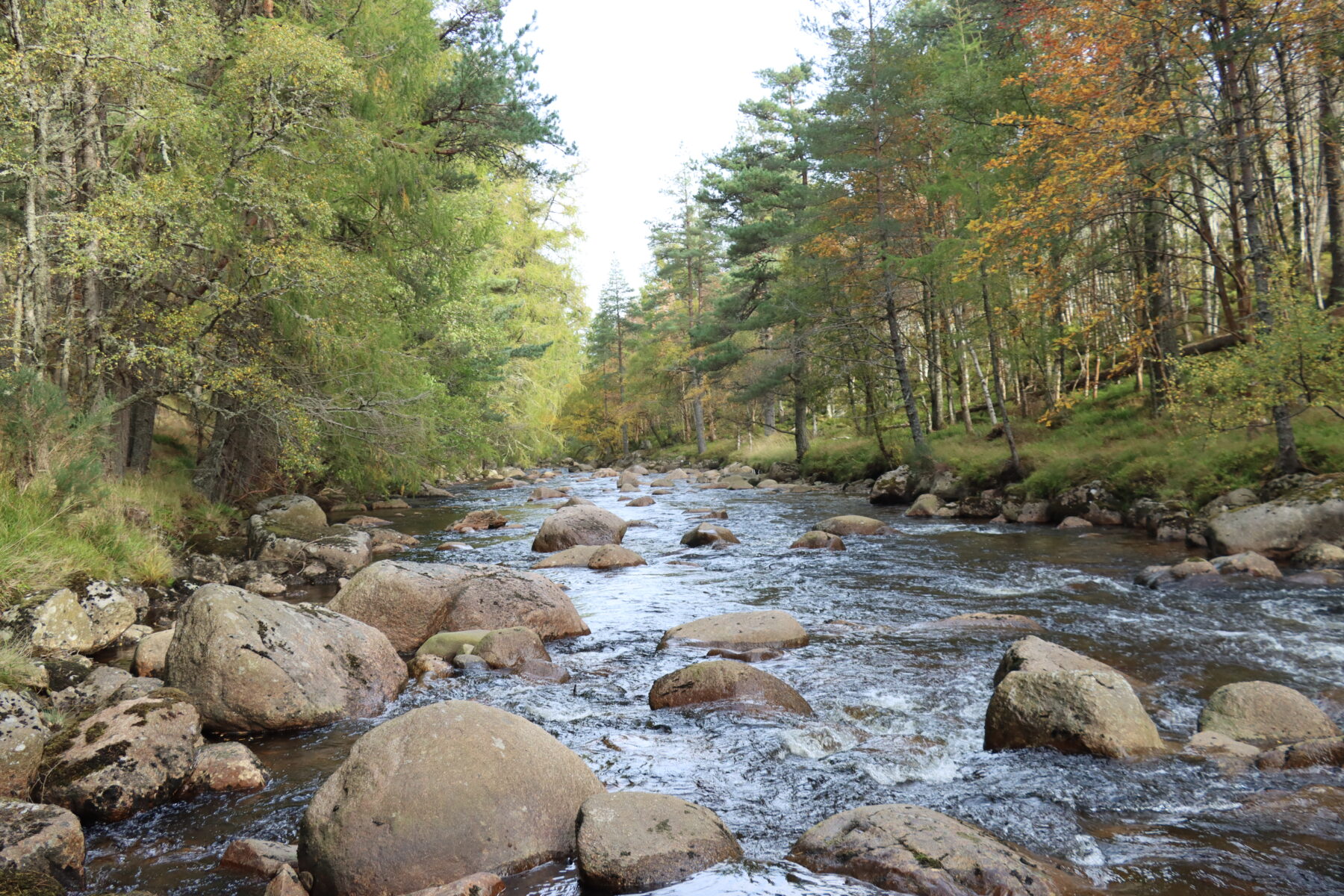
Our thanks to all involved in a huge combined effort
The River Dee Trust, Dee District Salmon Fishery Board and Atlantic Salmon Trust wish to extend our thanks to the many individuals who have worked meticulously, tirelessly and passionately on getting the trial through this milestone. We particularly thank the Balmoral Estate and Glenmuick Estate for their unwavering support in enabling the trial to take place on the River Muick.
We extend our enormous gratitude to the team at the University of Stirling whose expertise, care and attention has been critical in enabling adult salmon to return to their home river successfully. We also thank the team at UHI Inverness for their ongoing support, as well as our own teams who have been out on the river in all weathers to make the trial happen. Finally we thank our funders for supporting this important trial and for supporting the wider Save the Spring mission.
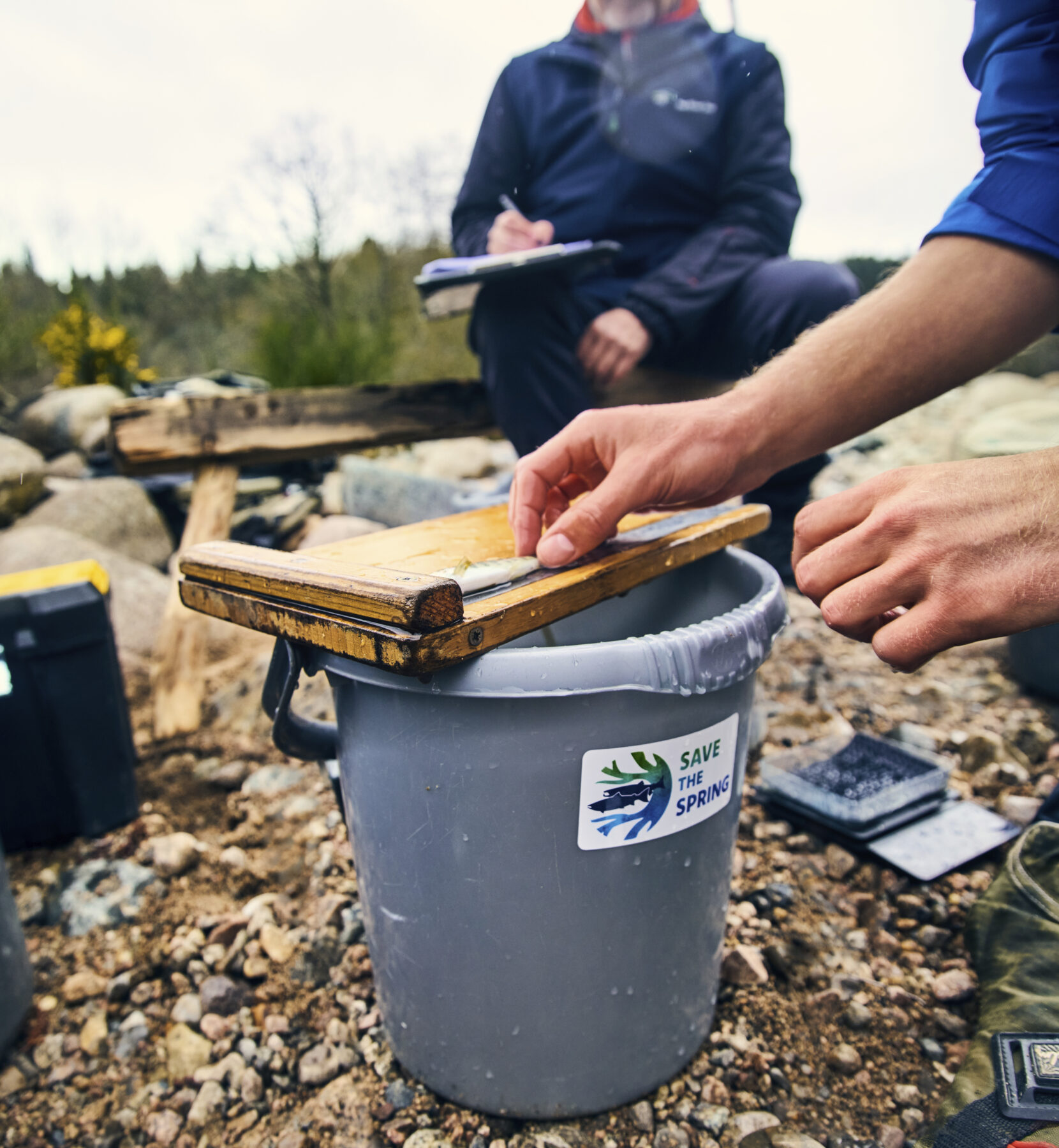
Want to support this important trial?
Here’s how you can help Save the Spring
Save the Spring is a 20-year programme of work to restore and futureproof the upper River Dee catchment, heartland of its famous spring-run wild Atlantic salmon – a population of fish which has declined by 80% in recent decades and is now at risk of extinction. Its goal is to rebuild and secure a long-term future for this iconic population of wild salmon, working across the landscape to boost biodiversity and build resilience to climate change by restoring native woodland, wetland, peatland and working in the river channel itself. Not only will this help the Dee’s precious wild salmon recover, but it will also bring far-reaching benefits for other at-risk native species, the wider environment and local communities.
Our trial needs you
In order to enable our smolt-to-adult supplementation trial to continue over the coming years, we now require dedicated funding for this element of the programme. If you are in a position to help support us, please get in touch via the contact details below and join us on this journey.
Individuals: To support Save the Spring as an individual, contact the River Dee team at info@riverdee.org
Corporate support
Find out how your business can play a positive role in shaping the future of the catchment, aligning with your own environmental and sustainability strategy. Contact the Atlantic Salmon Trust’s Corporate Ambassador, Mark Cockburn, at mark.cockburn@atlanticsalmontrust.org
